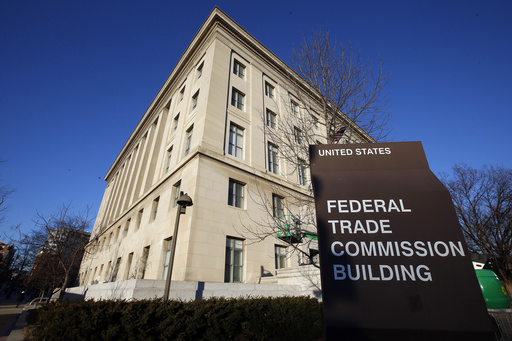NEW YORK (AP) — The Federal Trade Commission is taking action against a gig work company, saying it misled people about the money they could make on its platform.
Arise Virtual Solutions reached a settlement with the FTC, agreeing to pay $7 million to workers the FTC says were harmed by the company’s misconduct. Arise is a technology platform that connects major companies with customer service agents who freelance on its platform.
“Arise lured in workers with false promises about what they could earn while requiring them to pay out-of-pocket for essential equipment, training, and other expenses,” FTC Chairwoman Lina Khan said in a statement Tuesday. “Operating in the ‘gig’ economy is no license for evading the law, and the FTC will continue using all its tools to protect Americans from unlawful business practice.”
Arise lists Carnival Cruise Line, Dick’s Sporting Goods and Intuit Turbotax as clients.
“While we vehemently disagree with the FTC’s allegations and characterization of the facts, we have reached this agreement — which is not an admission or finding of liability or wrongdoing — so we can keep moving our business forward without the ongoing distraction and cost of litigation,” Arise said in a statement. “We stand by our mission of helping entrepreneurs find advancement in an environment that lets them build their businesses around flexible work serving as independent contractors providing services to world-class companies.”
In its complaint, the FTC said Arise made misleading advertisements, claiming people who signed up on their platform could get jobs paying up to $18 per hour doing remote customer service work. But when the company advertised the $18 per hour figure in 2020, its internal documents said the average pay for jobs on its platform was $12 an hour, and 99.9% of the consumers who joined its platform from 2019 to 2022 made less than $18 per hour, the FTC said.
People who join the Arise platform spend hundreds of dollars buying equipment including computers and headsets and paying for training programs that are required before working on the platform, the FTC said.
“They sell them on these training courses that they have to pay for, but then a high proportion don’t pass the training and get the job, so they just paid for nothing,” said Shannon Liss-Riordan, attorney and founding member of Lichten & Liss-Riordan, a law firm in Massachusetts. Liss-Riordan has sued Arise multiple times on behalf of workers. “I can’t really imagine $7 million will change its way of doing business, but hopefully it’s a shot across the bow that its practices are being more closely scrutinized by more arms of the government.”
The FTC also said Arise violated its Business Opportunity Rule, which requires that prospective workers receive key disclosures about earnings claims before they invest time and money in a business opportunity. It was the first time FTC charged a company with that violation.
That decision could affect more gig work platforms, because “even if the platform does nothing to mislead workers, the platform might violate the rule if it doesn’t give workers an extensive disclosure document,” said Erik Gordon, professor at Ross School of Business at University of Michigan.
—
Rephrased content:
The Federal Trade Commission has taken action against Arise Virtual Solutions, a gig work company, for deceiving individuals about the income potential on its platform. Arise has settled with the FTC, agreeing to compensate affected workers with $7 million due to alleged misconduct. Arise acts as a technology intermediary connecting large firms with freelance customer service agents.
FTC Chairwoman Lina Khan mentioned that Arise enticed workers with false promises of potential earnings while requiring them to cover costs for necessary equipment, training, and other expenses. The FTC aims to safeguard Americans from illegal business practices, stating that operating in the gig economy does not exempt companies from abiding by the law.
Arise’s client list includes major companies like Carnival Cruise Line, Dick’s Sporting Goods, and Intuit Turbotax. Despite disagreeing with the FTC’s claims, Arise settled to focus on its business without ongoing legal distractions. The company emphasized its commitment to supporting entrepreneurs seeking to advance by offering flexible work opportunities.
The FTC accused Arise of running misleading ads, asserting that those signing up could earn up to $18 per hour for remote customer service roles. However, internal data revealed that the average pay was $12 per hour, with the majority of individuals earning less than $18 per hour. Those joining the platform had to invest in equipment and training programs, which, as per the FTC, led to unnecessary expenses for many who didn’t ultimately secure jobs.
Shannon Liss-Riordan, an attorney who has sued Arise on behalf of workers, highlighted that many individuals paid for training that didn’t guarantee employment. The FTC also found Arise in violation of the Business Opportunity Rule, constituting the first case of such charges by the FTC. This enforcement may impact other gig work platforms, potentially requiring them to provide detailed disclosure documents to workers before any investment in business opportunities.
Erik Gordon, a professor at the Ross School of Business at the University of Michigan, suggested that this ruling might influence other platforms, emphasizing the importance of companies providing thorough disclosure information to workers.



